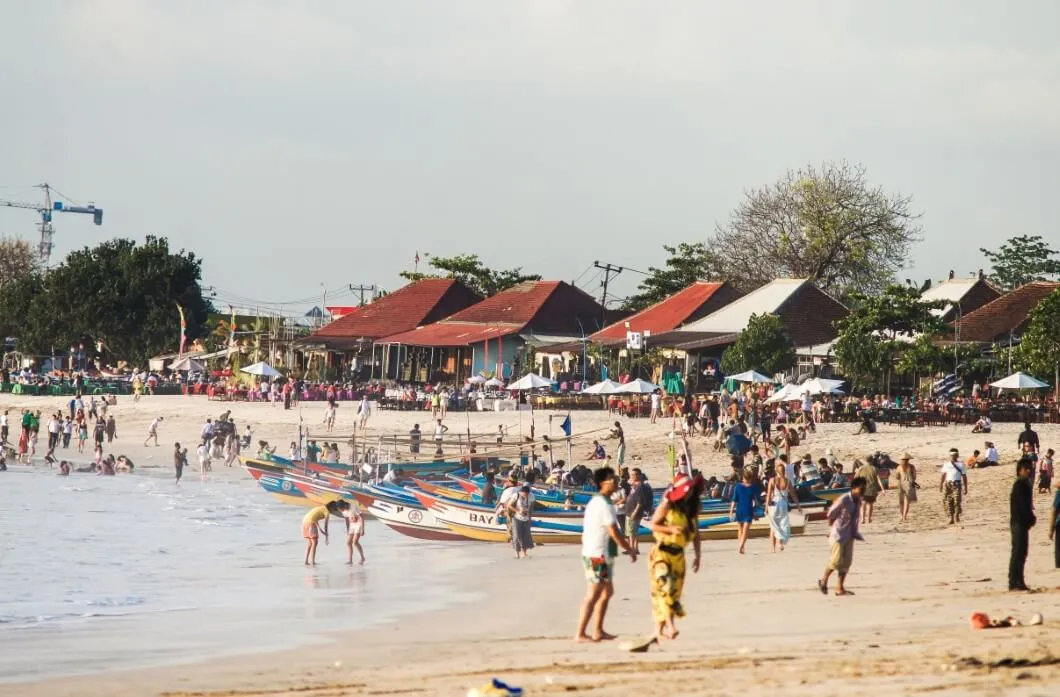Bali in 2024 welcomed over 6.3 million international visitors — a number that would typically be cause for celebration in a destination where tourism is the lifeblood of the economy. Instead, the figure has become a warning sign: the island’s global fame is pushing its environmental, cultural, and infrastructural limits to the edge.
From the moment travelers land at Denpasar Airport, the problems reveal themselves clearly: congested highways between the airport and Ubud, beaches cluttered with plastic waste and tightly packed sunbeds, rice terraces damaged by crowds chasing Instagram-perfect shots, and temples where selfie sticks overshadow traditional offerings. A continuous tourism corridor now stretches from Canggu and Seminyak through Kuta, Ubud, and the eastern cliffs — turning what was once a tropical haven into one of the densest tourism zones in Southeast Asia.
Travel sentiment reflects this shift. European and Australian tour operators report declining bookings for 2025–2026 as travelers begin searching for “the next Bali” — quieter alternatives like Lombok, Sumba, Sri Lanka, or the Philippines.
Not Overtourism — but a Crisis of Management
Experts — from tourism analysts to hotel executives — largely agree:
Bali’s problem is not the number of tourists, but the absence of robust governance.
Key issues include:
Weak and inconsistent regulation
Frequent leadership changes in the tourism administration, conflicting local and national regulations, and lax enforcement have created a climate where unlicensed villas, bars, and wellness centers can open and operate nearly unchecked. Wastewater treatment is often inadequate, and environmental impacts go unmonitored.
Aggressive promotion without limits
Despite the strain, Indonesia’s Ministry of Tourism continues pushing for ever-higher visitor numbers, rarely acknowledging the island’s ecological and infrastructural carrying capacity.
A tourist tax that almost no one pays
The 150,000 IDR (≈10 USD) levy introduced in February 2024 aimed to fund conservation projects — but only around 35% of international visitors ended up paying it. Hotels apply the rule inconsistently, and the online payment platform is notoriously unstable.
Bali’s Expat Tensions
The island’s long-term foreigners — digital nomads, yoga teachers, party venue operators, and villa owners — have become a sensitive topic in local communities.
Most contribute positively to Bali’s economy, but a minority have created significant tension:
-
Running retreats, bars, or coworking hubs without licenses
-
Undercutting local businesses
-
Ignoring cultural rules or visa regulations
-
Transforming quiet areas into nightlife zones
Local media increasingly highlights these issues, reinforcing fears that Bali’s cultural identity is being commercialized by outsiders.

The Risk of a Tourism “Death Spiral”
Destinations that fail to manage mass tourism often enter a predictable downward cycle:
-
More tourists
-
Lower satisfaction
-
Fewer high-spending guests
-
Cheaper prices
-
Rise of budget tourism
-
Further degradation of quality
Bali is showing early symptoms.
Hotels in Canggu and Ubud are reporting 10–15% lower real room rates in shoulder seasons compared to 2023. Iconic beaches, once postcard-perfect, appear on “most disappointing” lists. Major temples like Besakih and Tanah Lot have introduced timed-entry systems — a move widely viewed as overdue.
A Way Forward — If Action Comes Quickly
Many experts point to examples like Bhutan’s high-value tourism model, Palau’s stringent sustainability rules, or Iceland’s recalibrated post-pandemic tourism strategy as proof that an overcrowded destination can correct its course.
For Bali, the necessary steps are widely recognized:
-
Set strict capacity limits in the oversaturated south and redirect development toward the north and east.
-
Enforce a universal tourist tax, collected directly at the airport.
-
Crack down on illegal villas and visa violators, prioritizing high-profile cases to send a message.
-
Launch a dispersal strategy, subsidizing flights to underdeveloped regions and promoting “the other Bali.”
-
Restore local authority by giving village councils (banjar) veto power over major construction projects.
Until these measures become reality, Bali remains trapped in a paradox: the more popular it becomes, the more it risks losing the very qualities that made it world-famous.
The island still possesses extraordinary natural beauty, a rich spiritual culture, and warm hospitality. But paradise is not infinite — and Bali’s window to protect it is narrowing quickly.

